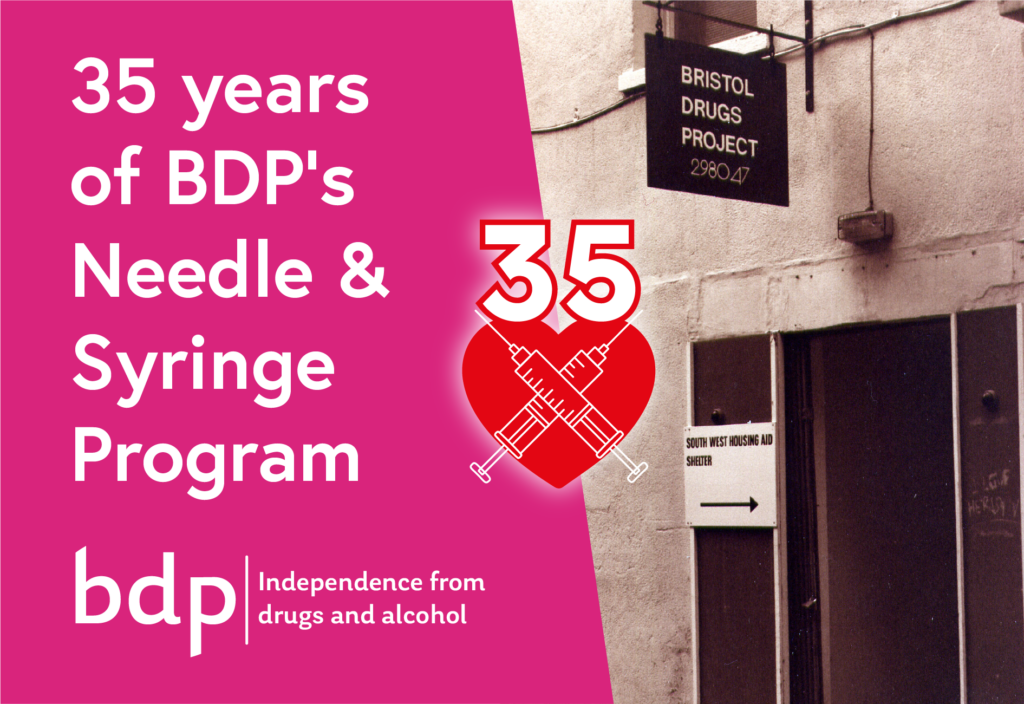01.07.22
3 minute read

Needle & Syringe Programs (NSPs) provide sterile injecting equipment to people who inject drugs. Using sterile injecting equipment drastically lowers the chance of contracting a blood-borne virus such as HIV or Hepatitis C. Needle & Syringe Programs were originally known as Needle Exchanges as early iterations around the world required users to hand in their used equipment in order to be given new clean equipment.
The first Needle & Syringe Programs were introduced in 1987 in 25 locations around the UK. These first locations, including ours at BDP, were part of a pilot commissioned by the then Department for Health and Social Security into the effectiveness of NSPs in reducing rates of HIV in people who inject drugs. Since then, the number of NSP locations has increased markedly. NSPs were shown to have positive health outcomes, and along with little public or political backlash, means sterile injecting equipment is now available for free up and down the country.
Viruses such as HIV and Hep C are transmitted through the sharing of injecting equipment as blood containing a blood-borne virus can be introduced into a healthy person’s bloodstream.
Reusing injecting equipment increases the chances of injecting injuries such as infections, abscesses and other wounds. Needles get blunt even after one use, and anytime spent outside of the sealed and sterile packaging increases the chance of infection.
Individuals accessing sterile injecting equipment have to engage with health care professionals. This means that drug workers have an opportunity to engage with people who inject drugs even if they have no intention of making any changes to their use. These brief interactions can be invaluable as workers can talk to individuals about their injecting practices, discuss safer techniques and lower the barriers for people to engage with services in a more structured manner.
We are incredibly proud of being part of the pioneering history of Needle Syringe Provision in the UK. Over the years, there have been a few significant steps forward in our ability to reduce harm that come from new technology or changes in legislation that allow something previously prohibited to be rolled out. NSPs are one of these advancements and are an essential service for us to reduce harm and as a tool to engage with existing and new service users.
Professor Gerry Stimson’s team pioneered research in this area which helped NSPs develop as core elements of the UK’s drug services: you can find one of their many publications here.
01.07.22
3 minute read

Bristol Drug Project
Capital threw their annual Summertime Ball this month, and our M32 Youth Group had the amazing opportunity to go along for t...